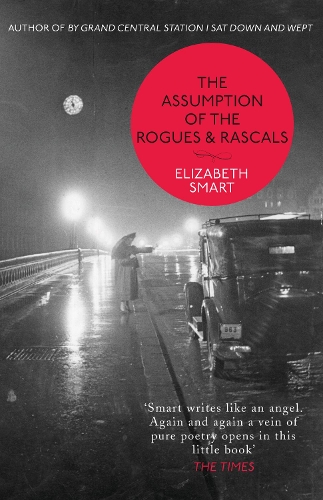
The Assumption of the Rogues & Rascals
(Paperback)
Publishing Details
The Assumption of the Rogues & Rascals
By (Author) Elizabeth Smart
HarperCollins Publishers
Fourth Estate Ltd
25th January 2016
United Kingdom
Classifications
General
Fiction
Family life fiction / Stories about family
Narrative theme: love / relationships
Narrative theme: coming of age
813.54
Physical Properties
Paperback
160
Width 129mm, Height 198mm, Spine 12mm
160g
Description
First published in 1978, and widely considered to be the sequel to her masterpiece By Grand Central Station I Sat Down and Wept, this remarkable book further established Smarts reputation as a brave and inspirational writer.
A still beautiful woman, 31 years old with four children by a faithless lover, cannot break the habit of expectation. She must learn to submit to the cold, bare, unglamorous tenets of reality the untenable position of love. She must learn to deflect Grand Passion into an acceptance of the rogues and rascals with their radiant faces, who buy her a bitter with borrowed cash. Out of a passionate youth, through pain and harsh revelation, she has attained a maturity a certain knowledge that the cost of rapture is high and that there is no looking back.
Hers is a voice that distils a womans determination for survival a voice that rises up from everyday life, from the bus queue, the Underground, the pub and in Elizabeth Smarts hand is wrought into something magnificent.
Reviews
Smart writes like an angel. Again and again a vein of pure poetry opens in this little book The Times
Welcome back to Elizabeth Smart. Sometimes an echo of Beckett breaks into her soliloquy, but more often her prose has a strong female beat, an earthy indifference Daily Telegraph
At its best, reading Smarts writing on love is like standing in front of a blast furnace The Times
Some Audenesque echoes occur, as do nods towards Joyce, or perhaps Beckett. But it is Smarts ability to encompass the whole modern female reaction to the male ordered world, matched in British women novelists perhaps only by Fay Weldon, that impresses most Sunday Times
Author Bio
Elizabeth Smart was born in Ottawa, Canada, in 1913. She was educated at private schools in Canada and, for a year, at Kings College, University of London. Her landmark work, By Grand Central Station I Sat Down and Wept was published in 1945. After the war she supported herself and her family through journalism and advertising work. In 1963 she became literary and associate editor of Queen magazine but subsequently dropped out of the literary scene to live quietly in a remote part of Suffolk. She died in 1986.
